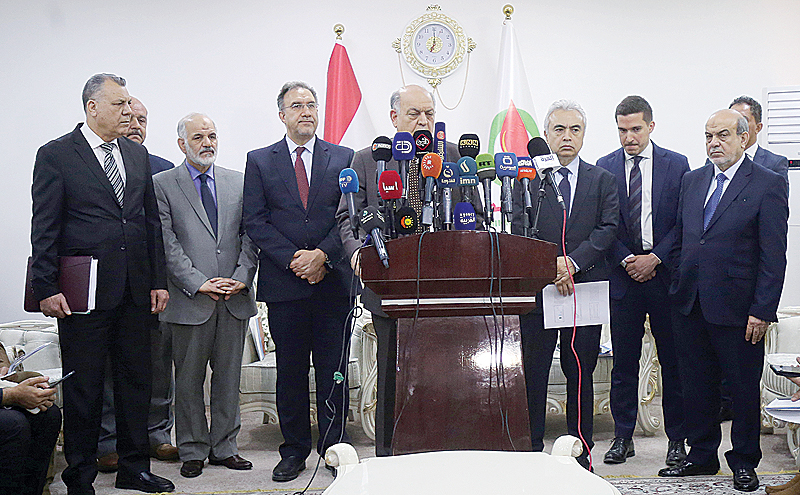Iraq on track to be third oil supplier in 2030: IEA
LONDON: Brent North Sea crude hit a near six-month high above $75 per barrel Thursday on supply concerns that have been worsened by the United States tightening the screw on sanctions-hit Iran.
Stock markets meanwhile mostly dropped, with traders across Europe digesting mixed company earnings updates and news of the collapse of two mega-mergers in the supermarket and banking industries. "Brent crude oil has rallied above $75 a barrel for the first time this year on the back of tighter sanctions on Iran, while gains in West Texas Intermediate (WTI) have been curtailed by a surge in US supply," noted Dean Popplewell, markets analyst at Oanda trading group.
Brent for delivery in June jumped to $75.60 per barrel, the highest level since the end of October.
WTI reached $66.28 per barrel, heading towards a six-month peak. The US removal this week of waivers that allowed countries to buy from sanctions-hit Iran is expected to hit oil supplies, though analysts are keeping watch on the region and whether OPEC responds by opening up the taps.
Oil prices had already enjoyed a strong recovery this year, with output capped by Russia and the Organization of Petroleum Exporting Countries. Crude futures have won support additionally on unrest in OPEC members Venezuela and Libya.
Oil kingpin Saudi Arabia meanwhile on Wednesday said it had no immediate plans to raise oil output to offset the move by Washington.
Saudi energy minister Khalid Al-Falih insisted that global oil inventories continued to rise despite unrest in Venezuela and the tougher US action. Iran's supreme leader Ayatollah Ali Khamenei on Wednesday called the end of oil sanction waivers by the United States a "hostile measure" that "won't be left without a response".

Iraqi advance
Iraq is on track to produce nearly six million barrels of crude daily by 2030, the International Energy Agency said yesterday, which would make it the world's third biggest oil supplier.
The IEA's wide-ranging report found that Iraq's production in the next decade could increase by an impressive 1.3 million barrels per day to a total of 5.9 million bpd. "Iraq is and will remain one of the key pillars of the oil market in the years to come," IEA head Fatih Birol told reporters yesterday.
The optimism stemmed from Iraq's 50 percent increase in oil production since 2012, Birol said, despite several years of low prices and the devastating rampage of the Islamic State group across a third of the country. "It shows the resilience of the Iraqi oil industry," said the IEA's executive director.
The agency acknowledged a range of potential roadblocks to its outlook, including global market conditions, foreign investment in Iraq, political stability and a steady supply of the water needed to actually produce oil.
Iraq is currently the fifth-largest oil producer worldwide, and the second-largest from among the Organization of the Petroleum Exporting Countries (OPEC). Iraq has the capacity to produce 4.6 million bpd, but last month exported just under 3.4 million bpd after agreeing to trim its oil production alongside others so prices would go up. Prices have indeed enjoyed a strong recovery, jumping even further Thursday to a nearly six-month high of $75.60.
It came amid supply concerns as the United States said it would end sanctions relief next month for eight countries importing Iranian crude.
Oil minister Thamer Al-Ghadban said yesterday Iraq could boost its production to meet the shortfall but would do so only in coordination with fellow OPEC members.
"Iraq does not take unilateral decisions," said Ghadban. "We have a huge capacity to increase, but knowing that, it is important to keep the market stable and remove the surplus of oil in the market," he told reporters. Ghadban said OPEC countries would meet in Saudi Arabia on May 19. "Until then, we have time to assess the market's needs and whether it requires an increase," he added. -Agencies










